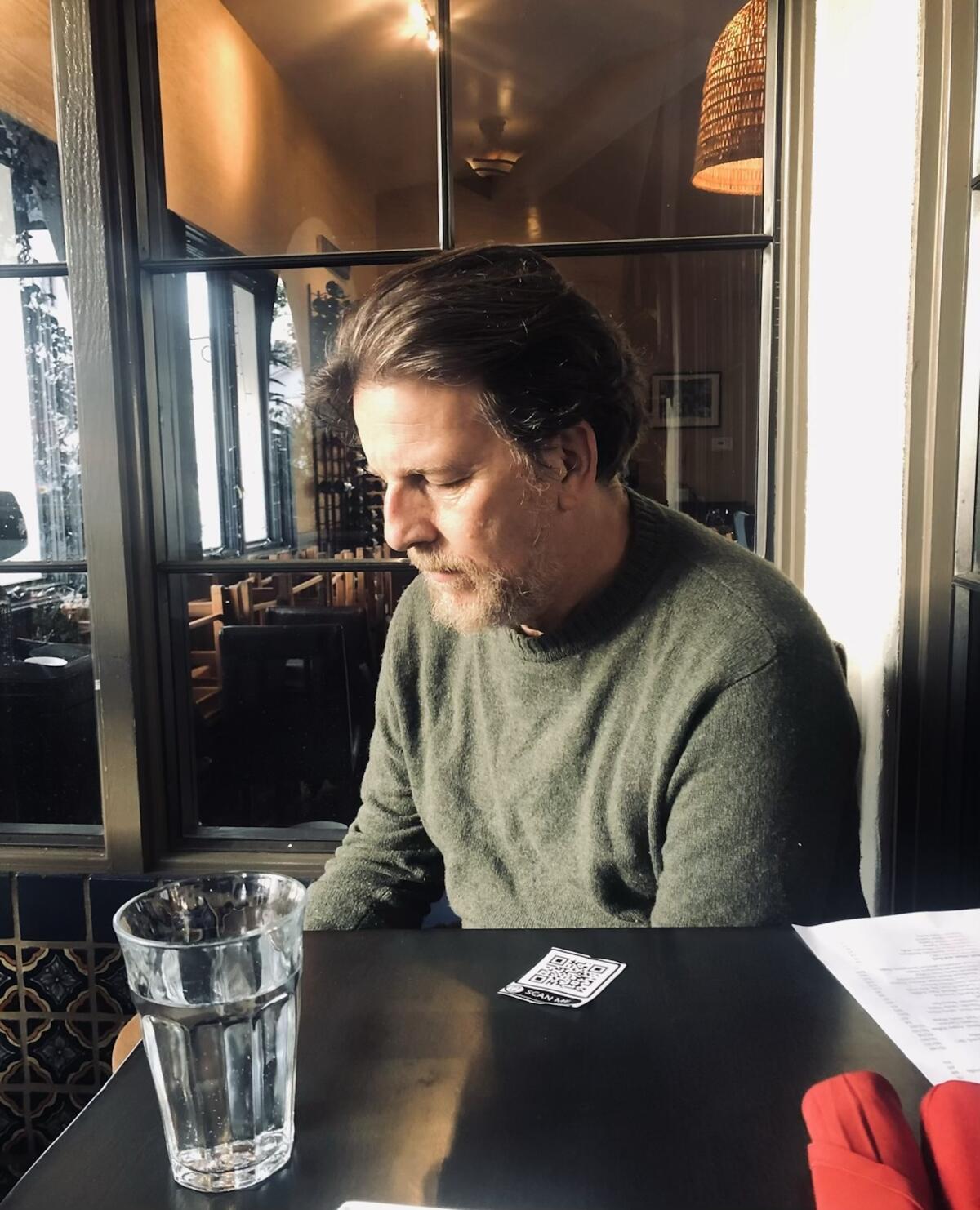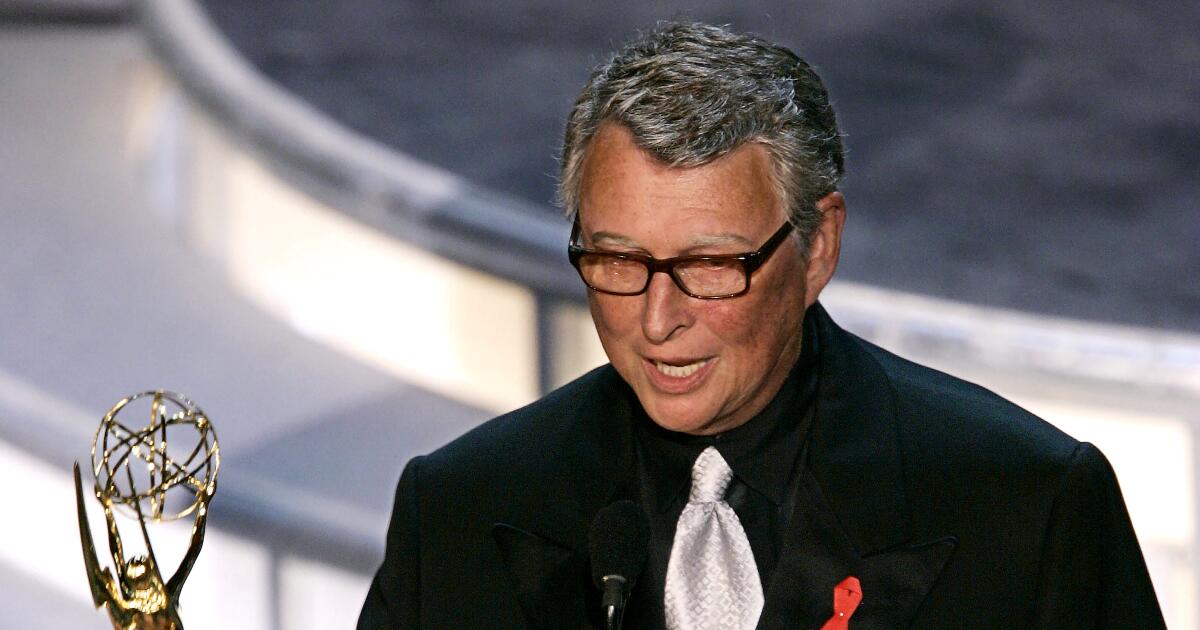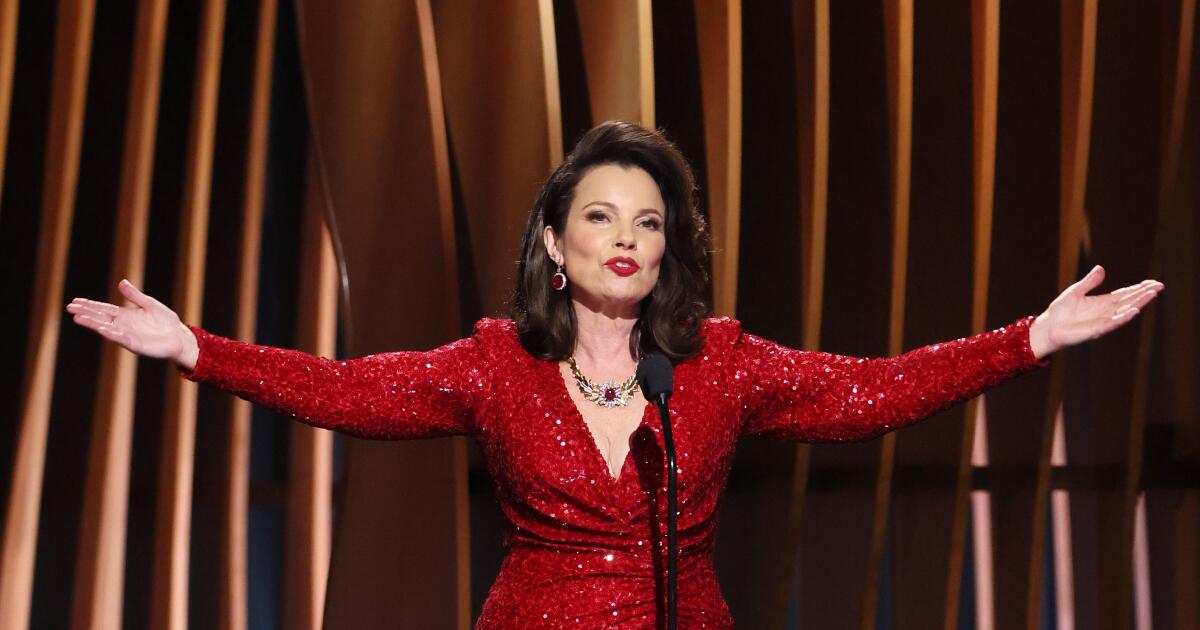There was a time when the collected works of music journalists, film critics and other cultural correspondents appeared regularly on the literary scene.
We relied on their observations to make sense not only of the art we admired and the artists who created it, but also of the times we lived in and the places we felt at home.
Now? Not so much. The way culture is celebrated, disseminated and reported on has changed, probably forever.
So when a book like “Running with the Devil: Essays, Articles and MemoriesJohn Albert’s “The Last Supper” appears on the horizon, feeling as anachronistic as a sailing ship with skulls and bones waving around it.
But John Albert was no ordinary writer.
When he died suddenly of a heart attack last year at the age of 58, He left behind a work spread across the pages of books, anthologies, literary magazines and alternative weeklies. His friend and editor, Joe Donnelly, came up with the idea of putting these pieces together in a collection.
“Almost as soon as John died,” Donnelly said, “I began to think about the responsibility of preserving his literary legacy.”
Donnelly reached out to their mutual friend Iris Berry, co-founder of Punk Hostage Pressabout the project. She didn't need convincing.
“There always seemed to be a kind of magic around John Albert,” Berry said. “A mystery and a charisma that I cannot explain. “He definitely left us too soon.”
It's fitting, then, that “Running With the Devil” will receive a big old-school-style book launch at the Wacko Soap Plant from 3 to 7 pm on Sunday, June 30.
Berry and Donnelly will be joined by a lineup of underground stars including Jesse Albert, Jennifer Finch, Brett Gurewitz, Ben Harper, Keith Morris, Arty Nelson, Jerry Stahl, John Waldman and Justin Warfield.
Albert emerged from the suburbs of Los Angeles and embraced the city in all its facets. He was an early member of Christian Death and Bad Religion, two bands whose names suggest a spiritual affinity, or at least a consensus, but which could not be more different stylistically.
He wrote of his discovery of Black Flag and his embrace of pulp-style punk rock: “I cut my hair and I can’t stop breaking windows.”
“In the Black Flag piece,” Berry said, “I love how he writes about the transition to punk rock in great detail. It affected everyone around him, especially his parents and friends. Throughout history, parents have always been horrified by their children’s decisions, but the punk movement was one of the harshest and John expressed that so well.”
Albert was much more than a former musician and occasional songwriter. A recovering addict, he found salvation in sports: first and most famously through baseball, which he wrote about in “The Wrecking Crew: The Really Bad News Griffith Park Pirates.”
By writing about a team of recovering addicts, washed-up rockers, and diverse weirdos, he captured something magical about Los Angeles.
“She made sense of Los Angeles in a kind of Didion and Eve Babitz way,” Donnelly said. “Her greatest subjects were her friends and the people in her circle, and she had a unique window into Los Angeles during that time and place.”
As Albert’s interests and experiences expanded, so did his writing: he wrote about surfing, living with hepatitis C and the Red Hot Chili Peppers. As Keith Morris, founding vocalist of Black Flag and the Circle Jerks, puts it: “John was a great guy and had a great knowledge of all kinds of things that were going on.”
Albert had a knack for writing about things that had been overlooked or marginalized, and focusing his lens on them helped make them culturally significant again. In a city where hype reigns, Albert was most interested in those who had opted out, been left behind, or been kicked out onto the streets by the dream factory.

Juan Alberto.
(Susan Tyler)
“He was a throwback,” Donnelly said, “a punk-rock George Plimpton. He was in the mix of life and wrote from the perspective of lived experience, and not just helicoptering off to an anthropological study of something. In fact, he knew what he was talking about.”
Although he was not a sentimental writer, Albert wrote with great humor. His sarcasm could be devastating, but he reserved it for his inner circle, the people he loved most.
“John was a very talented writer,” Berry said. “He remembered so much: feelings, details of feelings and places. He moved from comedy to tragedy and back to comedy with great grace. He was a true storyteller.”
One of the many tragedies of Albert's untimely passing is that we have been deprived of a book about fatherhood in 21st-century Los Angeles. Albert loved his son, Ravi, and all proceeds from the collection will go to him.
“Getting to publish his book, ‘Running With the Devil,’ is bittersweet for me,” Berry said. “I’m honored to be able to publish it and grateful to Joe Donnelly for giving it to me and editing it. I just wish it was under different circumstances. But knowing it’s for his son, Ravi, is everything. As my mom would say, ‘It’s definitely a mitzvah.’”
Join Iris Berry, Joe Donnelly and friends at Wacko Soap Plant, 4633 Hollywood Blvd., Sunday, June 30, from 3 to 7 p.m.
Jim Ruland is the author of the novel “Make It Stop” and “Corporate Rock Sucks: The Rise & Fall of SST Records.”












